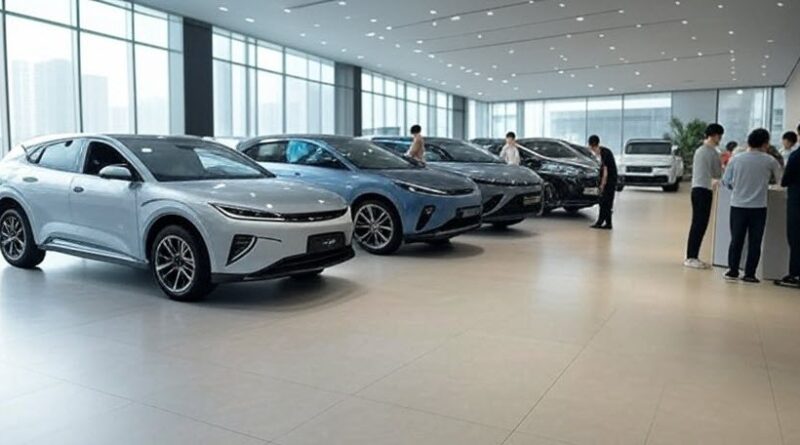BYD Dealer in Eastern China Goes Out of Business Media Reports
A major BYD dealership network in eastern China has ceased operations, marking one of the most significant dealer collapses in the country’s booming electric vehicle market. According to multiple local media outlets, Qiancheng Holdings, a large BYD dealer group based in Shandong province, has gone out of business, affecting thousands of customers and raising concerns about the financial health of traditional dealerships in China’s fast-evolving auto landscape.
What Happened?
Qiancheng Holdings, which operated more than 20 BYD showrooms across major cities such as Jinan and Weifang, abruptly shut its doors, leaving dealerships deserted and employees out of work.
Over 1,000 customers have been left in limbo—many of whom had already prepaid for:
- Extended warranties
- Vehicle maintenance packages
- Insurance services
- Deposit-based vehicle purchases
These consumers are now struggling to recover their funds or access promised services.
Who’s to Blame?
Qiancheng Holdings’ Statement:
The company blamed policy changes by BYD, claiming that recent adjustments in dealership terms created serious cash flow problems. Qiancheng alleges that BYD’s shift in strategy, including margin reductions and sales pressure, made operations unsustainable.
BYD’s Response:
In contrast, BYD has stated that Qiancheng’s aggressive expansion and poor financial management were the primary causes of the collapse. The automaker emphasized that it has strong partnerships with other stable dealers and is working to limit disruptions to affected customers.
Industry Context: Why This Matters
The collapse highlights a growing tension between traditional dealership models and direct-to-consumer strategies increasingly favored by major EV brands. With manufacturers like BYD, Tesla, and others aiming for tighter control over the sales and service process, many third-party dealers are facing declining profit margins and increased risk.
Other contributing factors include:
- Fierce competition in China’s EV sector
- A crowded marketplace with price wars
- Rising operational costs for dealer networks
- Changing consumer behavior favoring online and factory-direct purchases
What’s Next for BYD and Its Customers?
While BYD has yet to offer formal compensation to Qiancheng’s affected customers, it may face mounting pressure to provide support or replacement services. Several consumer groups are already forming to pursue legal action or rights protection.
Meanwhile, BYD is continuing its transition toward direct sales and has expanded its own branded experience centers in several provinces.
Conclusion
The shutdown of one of BYD’s largest dealership partners in eastern China exposes the fragile state of third-party dealerships in a rapidly shifting auto industry. As EV brands pursue streamlined, direct sales channels, traditional dealerships must adapt or risk collapse. The Qiancheng case serves as a warning to both automakers and consumers about the importance of financial sustainability and clear communication in an increasingly complex market.
Buying a used VW. Buying used vauxhall, BMW, Jaguar, Ford, Volvo, Range rover, Bentley, Aston Martin, Porsche, Ferrari, Lamborghini, Maserati, Hyundai, Tesla, Honda, Pagani

